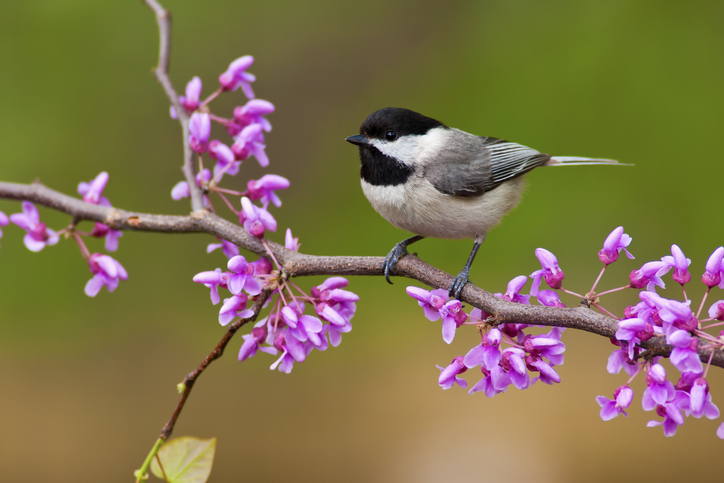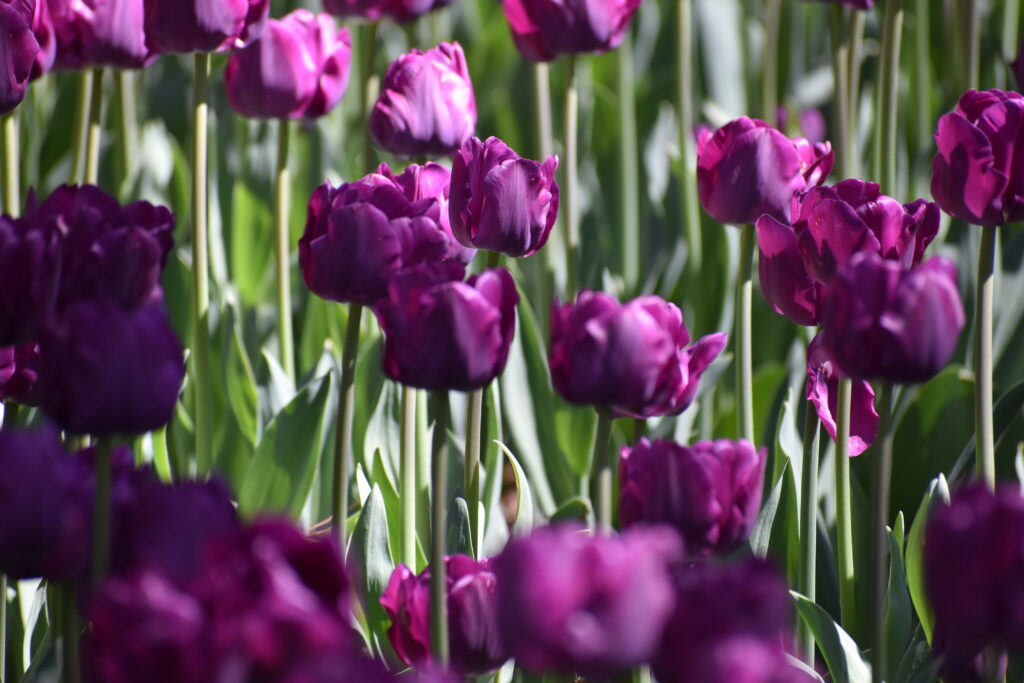The lens of my camera moved from branch to branch, following a black-capped chickadee that was desperate to avoid having its photo taken.

“What you got there?”
I looked over my shoulder to see a man and woman approaching me.
“A couple of black-capped chickadees,” I said as I turned back to the tree and pointed.
We all peered at the tree together.
The woman broke the silence. “I was just thinking that I hadn’t seen any birds yet.”
I thought about the tufted titmice I had seen earlier—the sound of their song as they took turns calling out to each other. Two turkey vultures were circling above the nearby lake just minutes ago. A pileated woodpecker cackled in the distance.
I started to tell her about them but stopped myself. “I bet you’ll see more in this area of the gardens.” We were in a wooded area of Garvan Woodland Gardens at this point.
It’s actually not surprising that she hadn’t noticed the birds. She was there to see the tulips. We all were. The striking colors and magnitude of the 150,000 tulips was breathtaking. And it was novel.
The Power of Novelty

I had been reading about the power of novelty in The Nature Fix (See the Resources Page). Novelty is good for our brains. Research shows that novel experiences result in the release of dopamine. Novelty also has the affect of holding our attention. The rest of the world fades into the background as we focus on the novel view or experience that has us in its grasp.
The woman went on to tell me about the bird feeders in her yard and the many species of birds they attract. They went on their way. Turning back to the tree, I realized the chickadees had also moved on. A few minutes later I passed the couple again and they were looking up at a finch in a tree above them. We exchanged smiles and nods and each continued our walk.
When we seek out new things, new places, new opportunities to have a sense of awe, that sense of wonder becomes habit forming. We want more of the good feeling that comes from that release of dopamine. And the experience continues to benefit us even when we return home.
Where do you go to get that sense of awe?
In all things of nature there is something of the marvelous.
Aristotle
If I had influence with the good fairy… I should ask that her gift to each child in the world be a sense of wonder so indestructible that it would last throughout life.
Rachel Carson